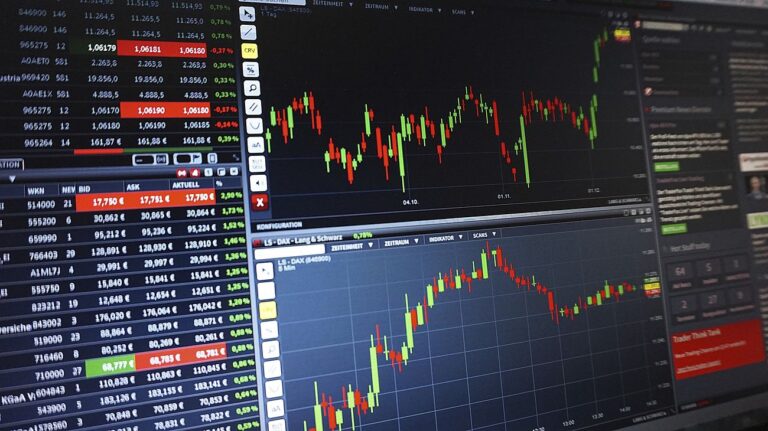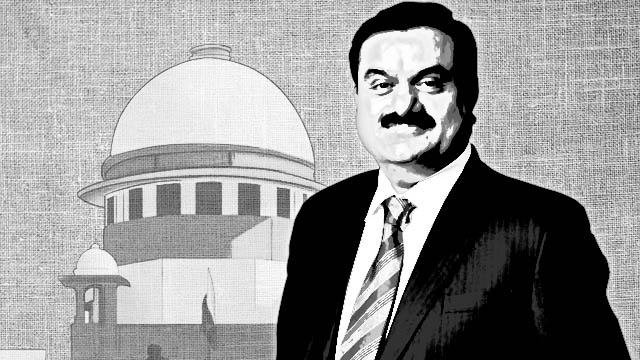Gautam Adani-owned Adani Group withdrew its Rs 200bn follow-up offer (FPO) on February 1st, within a few days of its issuance. The group’s chairman, Mr Adani, said his company would refund the FPO subscribers their money. Adani’s FPO withdrawal sent shockwaves through the stock market.
Adani’s FPO withdrawal was surprising as the offer was oversubscribed even though the share prices of all companies of the conglomerate nosedived after the US-based short-seller Hindenburg Research accused the conglomerate of artificially inflating its share prices using alleged insider trading malpractices.
But why did Adani suddenly withdraw the FPO after it was oversubscribed? In a statement, the Adani Group said it is withdrawing the FPO and making arrangements to refund all investors to avoid any inconvenience to the latter due to market volatility.
“Given the unprecedented situation and the current market volatility, the company aims to protect the interest of its investing community by returning the FPO proceeds and withdrawing the completed transaction,” the Adani Group said in a statement.
Adani Enterprises Limited’s (AEL) FPO, worth Rs 200 bn, was the largest in the Indian stock market. It’s reported that the FPO was oversubscribed despite a massive fall in Adani Group’s stock prices. It’s reported that the FPO was subscribed mainly by big industrialists and high net-worth individuals (HNIs).
Only 12% of retail investors invested in these FPOs, non-institutional investors subscribed 3.32 times more, and qualified institutional investors oversubscribed 126% more. Retail investors were offered a discount of Rs 64 per share. The Adani Group offered the investors an option of 50% upfront payment and the remaining amount in equal tranches to buy this FPO.
Announcement regarding Adani’s FPO withdrawal
Mr Adani, nearly 60, does not usually does firefighting for the controversial conglomerate. However, within a few days of signing agreements with the leaders of Egypt and Israel, where he is expanding his port business, a visibly stressed Mr Adani appeared in a video message addressing his investors and explaining the reason behind the FPO withdrawal.
In his video message, Mr Adani repeatedly emphasised that his group’s financial and business conditions are good and strong. And at the same time, he declared that he is determined to protect the investors’ interest.
Mr Adani said, “…considering the volatility of the market on yesterday, our board strongly felt that it would not have been morally correct to proceed with the FPO.” He credited his success to the “faith and trust reposed” by the investors.
“I owe all my success to them (investors). For me, the interest of my investor is paramount, and everything is secondary. Hence, to insulate the investors from potential losses, we have withdrawn the FPO”, he said in his message.
However, he also assured the investors about his business’s overall health. “This decision won’t have any impact on our existing operations, as well as our future plans”, he added.
Mr Adani also said, “We will continue to focus on the timely execution and delivery of projects. The fundamentals of our company are very strong, our balance sheet is healthy, and assets robust”.
Foreign banks and financial institutions have been alarmed since the Hindenburg Research investigation alleged that the overvaluation of the Adani Group’s companies results in an 85% downside, triggering the risk of bankruptcy for some of them.
Many lenders are reportedly worried about the stocks placed as collaterals by the Adani Group, as Hindenburg Research’s investigation alleged that the prices of those stocks were increased through market manipulation through shell companies.
Credit Suisse has declared that it will not accept Adani’s bonds as collaterals. Citigroup’s wealth unit has followed the footsteps of Credit Suisse and stopped accepting the Adani Group’s securities as collaterals.
Credit rating agency Moody’s warned on February 3rd that the Hindenburg Research’s investigation and the stock crash might impact the conglomerate’s prospects of raising funds through loans.
“These adverse developments are likely to reduce the group’s ability to raise capital to fund committed capex or refinance maturing debt over the next 1-2 years. We recognise that a portion of the capex is deferrable, and the rated entities do not have significant maturing debt until FY2025”, Moody’s said.
However, another credit agency Fitch didn’t see any immediate repercussions for the Adani conglomerate.
“We have an impeccable track record of meeting our debt obligations”, Mr Adani said to reassure his conglomerate’s lenders. Although he didn’t say anything about the high debt, the conglomerate owes to different banks.
Mr Adani also mentioned that the conglomerate would rethink its market strategy, indicating that it may adopt a new modus operandi. “Once the market stabilises, we will review our capital market strategy …each of our businesses will continue to create value,” he said.
What was the reason behind Adani’s FPO withdrawal?
Soon after the Hindenburg Research report was released, the share prices of all Adani companies nosedived unprecedentedly. On the National Stock Exchange (NSE), India’s largest stock market, where AEL’s share price was Rs 4,190 on December 21st, 2022, it hit the lowest price band of Rs 1,017.45 on February 3rd, 2023. Currently (February 3rd) share price of AEL is Rs 1,531.
Although Adani Group’s shares were somewhat stable on February 3rd, with the Nifty 50 up 1.38% in intraday trade and the Bombay Stock Exchange (BSE) Sensex up 1.52%, the markets achieved a bit of stability; the conglomerate continued bleeding.
The graph below shows AEL’s share prices fall from January to February 2023.
The following graph shows the percentage rate of rise and fall of the share prices of the AEL.
As the Hindenburg Research probe report against the Adani group adversely affected the stock market and retail investors were keener to sell than buy the conglomerate’s shares, in many ways, it became a challenge for Mr Adani to meet the subscription target of his FPO even in a falling market.
Had the Adani Group been unable to achieve subscription targets for its FPO, its share prices would have fallen even faster in the volatile market after that. So Adani’s reputation was saved by the efforts of other HNIs, big industrialists of all kinds, who oversubscribed the FPO. However, the market perception was that no investor could rely on those FPOs long-term.
If these large investors were to suffer after the share market crash, the political and business pressure on the Adani Group might have also increased. As a result, Mr Adani had to return all the money safely invested in the FPO without causing inconvenience to these non-retail buyers.
Will Adani’s FPO withdrawal provide a long-term safety net for the company?
Perhaps Mr Adani and his market experts believe that the backlash triggered by the Hindenburg Research investigation is temporary and that there will be no probe against the firm due to its alleged ‘closeness’ to India’s ruling Bharatiya Janata Party (BJP) and Prime Minister Narendra Modi.
However, regardless of his alleged ‘closeness’ with the BJP or Modi, the market trends are subject to investor sentiments and the prospects of profit and loss control such sentiments.
Hindenburg Research’s investigative reports are data-driven and have caused many large companies to crash in the stock market. As a result, Adani’s verbal assurances and efforts to shield himself from accusations using nationalism failed to convince investors, especially institutional investors.
Recently, former UK Prime Minister Boris Johnson’s brother Lord Joe Johnson had to resign from the top post of Elara Capital, which was identified as a shell company investing in Adani Group shares.
The British media has raised various questions about why the former prime minister visited the factories of the Adani Group and showed enthusiasm for doing business with the conglomerate when he visited India.
Some of Adani Group’s companies——AEL, Adani Ports and Ambuja Cement——are under additional scrutiny by the NSE. On the other hand, AEL was removed from S&P Dow Jones Indices after the Hindenburg Research investigation, which resulted in the stock crash and Adani’s FPO withdrawal within a few days of its issuance.
“Adani Enterprises (XBOM: 512599) will be removed from the Dow Jones Sustainability Indices following a Media & Stakeholder Analysis triggered by allegations of stock manipulation and accounting fraud (sic)”, S&P Dow Jones said.
As there have been repeated claims that the BJP-led Union government coerced large public sector entities such as the State Bank of India (SBI) and the Life Insurance Corporation (LIC) to invest in Adani Group shares, officials of these institutions had to deny that their finances are under duress. The LIC and SBI authorities have claimed that their exposure to Adani shares is quite low.
However, most of the Adani group companies have very high debt-to-equity ratios, so it will not be long before these companies face bankruptcy if creditors pressure them. The following graph shows that several Adani Group companies have high debt-to-equity ratios and are in a risky situation.
What does Adani’s FPO withdrawal indicate?
Adani’s FPO withdrawal indicates that the conglomerate retreated from its hitherto aggressive market-conquering strategy. While Mr Adani spoke about the withdrawal of the Rs 200bn-worth FPO to protect the interests of investors, he avoided mentioning that Hindenburg Research’s investigations alleged that there are not much of real “investors” in Adani Group’s companies.
The Hindenburg Research report, which has been considered seriously by various international ratings, trading and credit organisations, has shown that the shares of most of the Adani Group’s companies have been artificially inflated through alleged insider trading.
In that case, Adani’s assurance to investors beyond the FPO is either meant for the government-owned entities that have invested in the conglomerate’s shares or for his cohort of promoters who are accused of owning most stakes of the conglomerate’s entities.
Had AEL FPO caused financial loss to big industrialists and HNIs, there would have been a demand for an inquiry into the ownership of all the shares in the group by the big corporate houses as well.
Although the Stock Exchange Board of India (SEBI) is yet to formally launch an investigation into the Adani Group’s alleged malpractices, it has reportedly informed the press that it’s observing the trends of a particular conglomerate in the markets. Unsurprisingly, the SEBI didn’t name Adani Group or any of its suspected entities.
The Opposition alleges that the SEBI, where one of Adani’s close relatives is perched in an important position, has been under pressure from the Modi government not to act against the conglomerate.
However, had the FPO’s investors—the rich industrialists and HNIs—complained about Adani’s alleged malpractices, in case their FPO subscription suffered, the SEBI had to act under compulsion.
Any real investigation by the SEBI can be problematic for the Adani Group. One of the major allegations levelled by the Hindenburg Research report against the Adani Group is that the conglomerate’s listed entities in the stock market have violated the SEBI’s regulations that make it mandatory for the promoter groups not to own more than 75% stock in the companies.
The Hindenburg Research investigation has alleged that nearly four of Adani Group’s companies have violated the regulation through ‘insider trade’ using shell companies. If a SEBI investigation starts, it may end up delisting such companies if they are found guilty.
As a result, Adani’s FPO withdrawal emerged as a strategy through which the group, on the one hand, secured the return of the investments of big industrialists and HNIs close to it and kept the road open for reconciliation, on the other hand, it freed itself from the scope of any investigation by the SEBI or any other agency.
The market had somewhat settled on February 3rd. It remains to be seen whether the Adani Group’s stocks will continue to bleed even on Monday, February 6th, when the market reopens. If the Adani stocks manage to remain stable, even at lower points, then it can indicate that Adani’s FPO withdrawal has helped the conglomerate buy some time. If the market shows signs of volatility, in that case, it may open the floodgates of a greater crisis in the days to come.
Tanmoy Ibrahim is a journalist who writes extensively on geopolitics and political economy. During his two-decade-long career, he has written extensively on the economic aspects behind the rise of the ultra-right forces and communalism in India. A life-long student of the dynamic praxis of geopolitics, he emphasises the need for a multipolar world with multilateral ties for a peaceful future for all.







